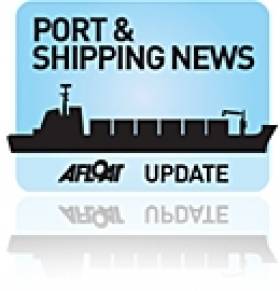Displaying items by tag: Irish Marine Conferences
Ports & Shipping Review: Major OPV Conference, Bantry Works 2016, First Irish Maritime Forum, NMCI 10th Anniversary and Samskip On Sulphur
#Ports&ShippingReview - Over the last fortnight, Jehan Ashmore has reported on the shipping scene, where The International Offshore Patrol Vessels Conference was held in Dublin, the three-day event was chaired by Rear Admiral Mark Mellett of the Naval Service.
Councillors at a Western Committee meeting held in Cork, were informed the start date for the redevelopment plans for Bantry Harbour costing up to €7m would not be until at least 2016.
Also in Cork city, more than 150 delegates from the maritime industry attended the inaugural Irish Maritime Forum hosted by the Port of Cork, in partnership with the Irish Ports Association (IPA).
It was then the turn of the IPA's counterpart in the UK, the British Ports Association (BPA) which held their annual conference yesterday which was hosted by Warrenpoint Harbour Authority in Newcastle, Co. Down.
The National Maritime College of Ireland (NMCI) celebrated its tenth anniversary. As a provider of world class maritime education and training, an event to mark the occasion was to be led yesterday by Minister for Marine & Defence, Simon Coveney, TD.
Samskip CEO, Diederick Blom has said the increasing cost of new low-sulphur fuel from the regulations 'may drive a shift back to road transport on certain European shortsea routes'.





























































